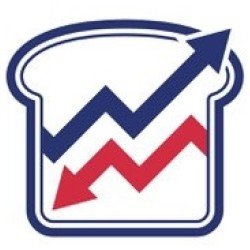The No. 1 mistake Americans make with their credit cards—it’s like ‘owing money to a loan shark,’ expert says | CNBC make it
In today’s fast-paced world, credit cards have become ubiquitous in our financial lives, offering a convenient way to make purchases. However, this convenience comes with a catch: high-interest rates. With the average annual percentage rate (APR) on credit card debt now at a staggering 20.75%, financial planners are sounding the alarm on the dangers of carrying a balance from month to month. This rate is significantly higher than the single-digit interest rates available with other types of loans, making credit card debt particularly burdensome.
Carrying a balance on your credit card can quickly become a financial trap. Most of your minimum payment goes towards interest rather than reducing the principal amount owed, prolonging the debt cycle. For instance, paying off a $5,000 balance at a 20% APR with minimum payments could take over 277 months and cost an additional $7,723 in interest. This scenario illustrates how making only the minimum payment can make it exponentially challenging to clear your debt.
To avoid falling into this trap, financial experts recommend using credit cards only for purchases that can be paid off quickly, ideally within the same billing cycle, to take advantage of the grace period and avoid interest charges. Some credit cards, especially subprime ones, may not offer grace periods, making it even more crucial to pay off purchases as soon as possible. For those already in debt, transferring the balance to a card with a 0% introductory APR offer could provide much-needed relief and an opportunity to pay the debt more efficiently.
The key to managing credit card use effectively is to treat it with the same caution as any form of borrowing. Using a debit card or an emergency fund for unexpected expenses can help avoid the high costs associated with credit card debt. Financial planners often stress the importance of maintaining an emergency fund worth three to six months of expenses to safeguard against the need to rely on high-interest credit options………![]() [read more]
[read more]
Rising Dough
 Consider the impact of high credit card interest rates on consumer spending and saving habits. How might this influence the overall economy, particularly regarding personal debt levels and financial stability?
Consider the impact of high credit card interest rates on consumer spending and saving habits. How might this influence the overall economy, particularly regarding personal debt levels and financial stability?
*Click on the “Full Loaf” icon to read the full article! After you read the full article, let us know your thoughts.
Share this content:













The impact of high credit card interest rates on consumer spending, saving habits, personal debt levels, and financial stability underscores the importance of prudent financial management, effective regulation of the financial sector, and policies aimed at promoting sustainable economic growth and equitable access to credit.
The economy will immoderately slow. For many, their credit card is their primary payment option. Savings will increase as people realize they can’t use “have it now, worry about it later” mindset anymore.